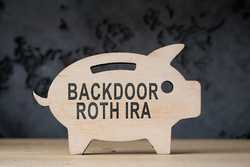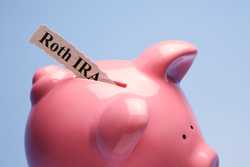- Low cost
- an increase in value rapidly
- High potential upside
- Discover a new, undervalued company
Best Ways to Invest In Penny Stocks

Our evaluations and opinions are not influenced by our advertising relationships, but we may earn a commission from our partners’ links. This content is created by TIME Stamped, under TIME’s direction and produced in accordance with TIME’s editorial guidelines and overseen by TIME’s editorial staff. Learn more about it.
Have you ever imagined investing in one of the giant companies in their early days? Before they made it big, Apple, Microsoft, Netflix, Nvidia, and Tesla all started as penny stocks. You could have bought stock for pennies and sold it for hundreds, or even thousands, of dollars per share. That’s the dream for most penny stock investors.
Penny stocks are shares of small companies that trade at $5 or lower. They’ve also been called microcap stocks because their market cap lies between $250 and $300 million. A company that makes it big has a massive upside, but most penny stocks end up losing money.
The question remains: Should penny stocks be part of your investment portfolio? Here’s everything you need to know about how to invest in penny stocks, where to invest, what to watch out for, and what alternatives you have.
To buy penny stocks, you’ll need a brokerage account. If you don’t already have one, popular options include Fidelity, Schwab, TD Ameritrade, or J.P. Morgan Self-Directed Investing. For more options, check out our list of the best online brokers.
INVESTMENT AND INSURANCE PRODUCTS ARE: NOT A DEPOSIT • NOT FDIC INSURED • NO BANK GUARANTEE • MAY LOSE VALUE
Once your brokerage account is open and active, you’ll need to fund it to invest in the penny stocks you want. Most brokerages enable you to transfer cash from your primary bank account.
To find penny stocks, look for those trading at $5 per stock or less. Since penny stocks are susceptible to scams, you’ll need to conduct fairly extensive research on the stocks available to purchase. Some brokerages, such as Fidelity and Charles Schwab, offer in-depth research tools but remember that no penny stock can be considered a safe investment.
If a penny stock is listed on a major exchange and you can purchase it with your brokerage account, it’s likely registered with the Securities and Exchange Commission (SEC).
Some penny stocks trade over the counter (OTC), meaning they’re not listed on a major index and are traded dealer to dealer. They don’t have the same reporting requirements as stocks listed on an exchange, so they’re difficult to fairly evaluate. We’ll address penny stock scams later in this article.
Search for the stock name in your brokerage account. Specify the number of stocks you’d like to purchase. Place the order.
As mentioned, online brokerage accounts are some of the best places to start investing in penny stocks. Many brokers don’t charge fees for trades placed online and help you avoid the shifty nature included with many over-the-counter (OTC) penny stocks. Here’s a closer look at some of the top choices.
Fidelity is one of the largest online brokerages in the U.S. It’s known for its zero-fee trades, ease of use, and extensive research tools. Research tools make Fidelity ideal for investing in penny stocks, as you can access more detailed company data. Fidelity also allows you to purchase fractional shares.
Like Fidelity, Charles Schwab is a large brokerage that supports a wide range of investments. It also boasts a robust trading platform with plenty of research tools. There is no minimum investment required, and Schwab doesn’t charge trading fees in self-directed accounts. Note that Schwab does charge a fee for trading OTC stocks.
Robinhood was one of the first online brokers to offer commission-free trades and fractional shares. Although it lacks the aforementioned platforms' in-depth research tools, you can access professional research from Morningstar and Nasdaq Level II data by upgrading to a Robinhood Gold subscription ($5 per month.) Robinhood is worth considering, especially if you have an alternative method for conducting research on companies.
TradeStation offers a powerful trading platform with no account minimums and no trading fees on stocks or exchange-traded funds (ETFs). In addition to regular taxable accounts, TradeStation offers several IRA accounts, including Traditional, Simple, SEP, and Roth IRAs, and Rollovers. One drawback is that it doesn’t support fractional shares.
Investing in penny stocks will often result in losses. This is because most penny stocks are small companies that are not well established, so investing in them is highly speculative. Only invest money you can afford to lose, and never devote more than a tiny percentage of your overall portfolio to penny stocks.
Very few people should invest in penny stocks. The best penny stock investors are the ones who can stand to lose money and perform in-depth research on the company behind the penny stock.
Many brokerages don’t charge commission fees for trades made in a self-directed investment account. If you go with the right brokerage, you shouldn't be charged for trades you make with penny stocks.
Similar to many get-rich-quick schemes, penny stocks tend to attract scammers. You may be buying bogus stock or getting ripped off by a seller. Here are a few things to watch out for:
Instead of investing in penny stocks, you may want to consider trading fractional shares. Some high-quality stocks have very high share prices. But with fractional shares investing, you have the ability to purchase a partial share. This allows you to invest in stocks or ETFs without having the full amount to purchase a single share. Many brokers now support fractional share trading.
Since penny stocks are so risky, it’s more likely than not that you’ll lose your money. If you like the potential of a company and can evaluate its financial statements, you can allocate some money toward penny stock investing and see where it takes you.
It is theoretically possible to get rich from penny stocks, but it’s akin to getting rich from gambling or the lottery: The odds of this happening are long.
Experienced advisors don’t recommend penny stock investing for beginners, though this recommendation does little to deter hopeful, get-rich-quick investors. If you don’t have much to invest, it means that a large portion of your portfolio could be held in stocks that aren’t likely to generate a positive return.
Most online brokerages have little to no minimum investment requirement. As long as you have enough money to cover the number of shares you wish to purchase, you can trade.
The general rule of thumb for buying penny stock is to only invest money you can afford to lose. If it does great, you’ll be excited. If you lose it, as 90% of investors do, it won’t be the end of the world.
The information presented here is created by TIME Stamped and overseen by TIME editorial staff. To learn more, see our About Us page.




